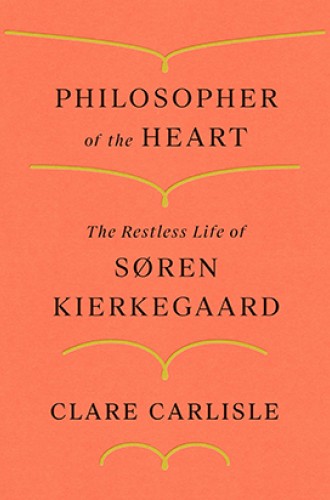A Kierkegaardian biography of Kierkegaard
Clare Carlisle helps readers struggle with what it means to be human in the world.
Clare Carlisle’s wonderful new biography of Søren Kierkegaard is not an easy read. If you are simply looking for the facts of Kierkegaard’s life, Alastair Hannay’s Kierkegaard: A Biography or Stephen Backhouse’s Kierkegaard: A Single Life might be better choices. Then again, there was nothing easy about Kierkegaard. In his name—which roughly translates as severe graveyard—he seems to have inherited a rather strict and demanding personality. As Carlisle admits, Kierkegaard was “not an easy travelling companion.” He was, she continues, “a difficult person—and perhaps dangerous as an exemplar.”
He was also, by many accounts a quite enjoyable walking partner (until the Corsair affair, when he was publicly ridiculed in the satirical magazine The Corsair). He spent most afternoons wandering the streets of his native Copenhagen, easily entering into conversation with his neighbors. In these moments, his quick wit was as enjoyable for his friends as it was painful for his enemies.
One of the arguments of Kierkegaard’s philosophical and theological work was that Danish Christianity had become too easy. It was his task, he believed, to make Christianity difficult again—a task he fulfilled by producing some of the most creative, innovative, and dense works of European philosophy and theology. This conviction gave rise to a philosophical and theological project that insisted, at its heart, on the passionate silence of faith. The project employed a dizzying host of characters and pseudonymous authors, written in a breathtaking array of styles and genres that makes it impossible to know when Kierkegaard himself is speaking. There is nothing easy about any of that.






